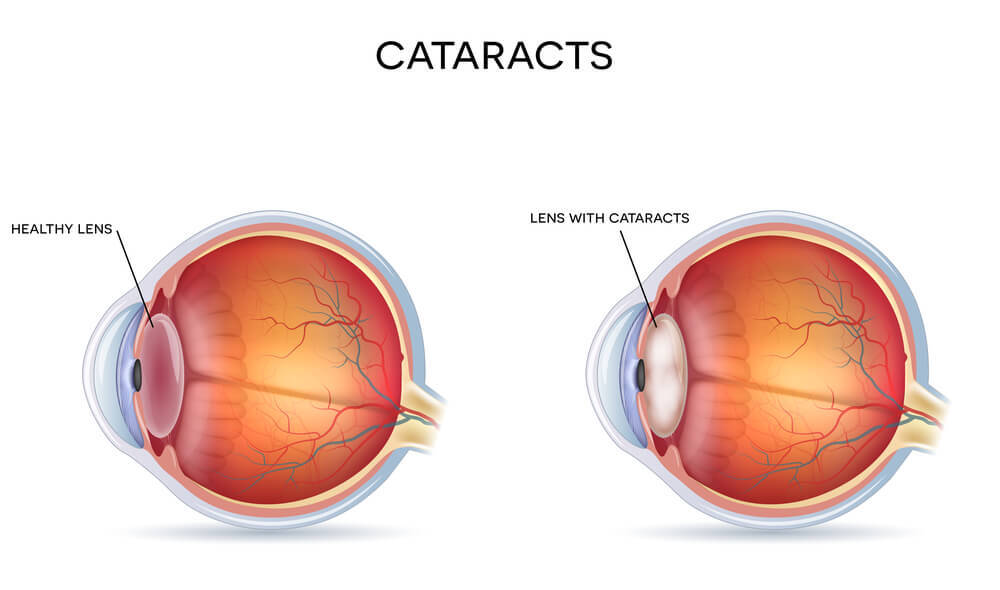7 Ways Cataracts Affect Your Daily Life
Posted by: Pepose Vision Institute in Cataracts on October 3, 2025

Although early cataract symptoms can often be managed temporarily with lifestyle adjustments or prescription changes, cataracts will continue to develop, eventually making surgery the best option to regain the clear vision you once enjoyed. If you’ve noticed your vision becoming cloudier over time, you might be experiencing cataracts.
The effects of cataracts on your everyday routine can signal when it’s time to seek treatment. Keep reading to learn seven different ways cataracts can affect your everyday life.
What Are Cataracts?

Cataracts happen when the natural lens in your eye becomes cloudy, much like looking through a foggy window. Your eye’s lens is normally clear when you’re young and helps focus light onto the retina at the back of your eye.
However, as you age, proteins in the lens can clump together, creating cloudy areas that block or scatter light. This cloudiness is what we call a cataract.
While aging is the most common cause of cataracts, other factors can contribute to their development or cause them to develop earlier in life, including diabetes, smoking, prolonged sun exposure, and even some medications. The good news is that cataracts are highly treatable with modern surgical techniques.
How Cataracts Impact Your Everyday Activities
As cataracts progress, they can significantly affect various aspects of your daily routine. Here are seven common ways cataracts may be impacting your life:
1. Driving Becomes Challenging and Unsafe
One of the most concerning effects of cataracts is how they impact your ability to drive safely. You may notice increased glare from oncoming headlights at night, making it difficult to see the road clearly.
Street signs may appear blurry or hard to read and judging distances between vehicles becomes more challenging. Many people with cataracts feel less confident behind the wheel, especially during nighttime or in bright sunlight.
2. Reading and Close-Up Work Become Frustrating

Activities that require clear near vision, such as reading books or looking at your smartphone, can become increasingly difficult with cataracts. You might find yourself holding reading materials farther away or requiring brighter lighting to see text clearly.
Tasks like sewing, crafting, or working on puzzles may become frustrating as fine details become harder to distinguish.
3. Household Tasks Require More Effort
Simple household activities can become more challenging when you have cataracts. Cooking may become difficult as you struggle to read recipe instructions or see when food is properly cooked. Even basic activities like sorting medications or reading expiration dates on food items can become problematic.
4. Social Activities Lose Their Appeal
For many people, cataracts impact their social life in unexpected ways. You might avoid social gatherings because you have trouble recognizing faces from a distance or feel embarrassed about stumbling or bumping into things.
Movie theaters can become less enjoyable due to difficulty seeing the screen clearly, and restaurants may feel uncomfortable if you struggle to read menus in dim lighting.
5. Work Performance May Decline
If you’re still working, cataracts can significantly impact your job performance. Computer screens may appear blurry or cause eye strain, making it difficult to read emails or complete tasks efficiently. This can be particularly stressful if your livelihood depends on clear vision.
6. Personal Safety Becomes a Concern
Cataracts can create safety hazards in your daily life. You may have trouble seeing curbs, steps, or other obstacles, increasing your risk of trips and falls.
Poor depth perception can make navigating stairs particularly dangerous. You might also miss important visual cues like stop signs, traffic lights, or warning signs, putting both you and others at risk.
7. Independence and Confidence Diminish
One of the most significant impacts of cataracts is how they can affect your overall independence and self-confidence. You may find yourself relying more on family members or friends for transportation, shopping, or other activities you once handled easily on your own. This loss of independence can be emotionally challenging and may lead to feelings of frustration or depression.
Recognizing the Signs

Beyond these daily life impacts, it’s important to recognize the common symptoms of cataracts. These include blurry or cloudy vision, increased sensitivity to light and glare, seeing halos around lights, difficulty seeing at night, colors appearing faded or yellowed, and frequent changes in your eyeglass or contact lens prescription.
If you’re experiencing any of these symptoms or if cataracts are affecting your daily activities, it’s important to know that you don’t have to live with compromised vision.
Take Action for Clearer Vision
Cataracts can impact every aspect of your life. If you are experiencing signs or symptoms of cataracts, schedule a cataract evaluation with your eye doctor at Pepose Vision. Our eye care professionals use the latest diagnostic technology to evaluate your cataracts and determine the best treatment approach for your individual needs.
If it’s time for you to have cataract surgery, your eye doctor will talk to you about your options. Modern cataract surgery is a safe, outpatient procedure that replaces your natural lens with a clear artificial intraocular lens that can restore clear vision and help you return to the activities you love.
Don’t let cataracts continue to limit your daily life and independence.
Schedule an appointment at Pepose Vision Institute in St. Louis, MO, today to schedule a comprehensive eye examination. Our team will work with you to develop a personalized treatment plan that can help restore your clear vision and improve your quality of life.


